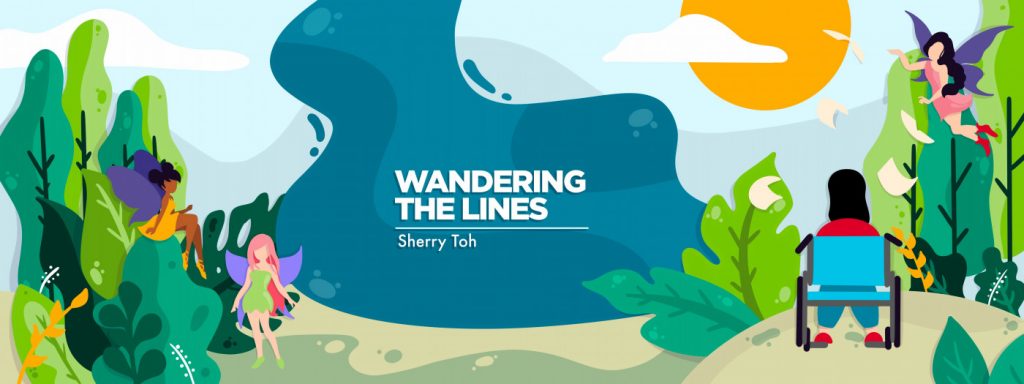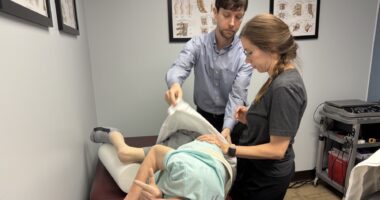Justice and Equality for SMA Patients Is Justice and Equality for All


Every year, at the end of the annual parade on Singapore’s National Day on Aug. 9, Singaporeans across the world place our fists over our hearts in unison. We then recite our nation’s pledge, promising ourselves and our fellow citizens that we’ll “build a democratic society based on justice and equality.”
It’s a gesture and pledge I know by heart. Although I was home-schooled with an American syllabus during kindergarten, my mum ensured I recited the pledge every single day, as my Singaporean peers would. My dad is a proud Singaporean man himself, but it was my mum, a former flight attendant, who instilled the love of our country into her children. One year, the first of my two younger brothers would even march in the National Day parade with the Red Cross Youth.
But this year, during my research for SMA Awareness Month, I began questioning if I knew the significance of Singapore’s pledge, or if I was simply moving my body and making sounds because I was told to. Everyone says they want justice and equality — but how would we define those words? Do we know what those words mean? More importantly, do we mean them when we say them?
I’m admittedly idealistic, so let’s say the majority of people abide by the dictionary definitions of justice and equality. Justice is defined as genuinely fair treatment, and equality is defined as everyone receiving equal treatment and access to the same opportunities. Saying these words and meaning them would still be just the beginning of making them our reality.
To quote James 2:17 from the Bible, “In the same way, faith by itself, if it is not accompanied by action, is dead.”
***
When my friend Brianna and I discussed writing columns that could read like companion columns for SMA Awareness Month, we thought of the differences between our experiences with SMA. Brie lives in the U.S., I live in Singapore. I have accessible public transport, Brie has to be driven in her van. Brie has access to a disease-modifying treatment for SMA, I have access to a medical team that can assess and vaccinate me in my own home.
Brie and I share many commonalities in our experiences. We’re both middle-class millennials in our 20s, who are part of the majority races in our rather wealthy countries. We have access to support, care, and opportunities — even a degree of independence other disabled folks can’t afford, by way of the internet. We live privileged lives admittedly gained by sheer luck, and we’re aware of the responsibility that comes with that privilege and the gratitude we ought to show.
However, it bears mentioning that the differences in our lives with SMA are often due to varying inequalities in the countries where we reside. Brie should be able to travel independently via train or bus if she chooses to, or be assessed and treated in her home if she’s unwell. I should be able to access a potential treatment for a disease that will worsen my quality of life as it progresses.
And the availability of these things wouldn’t benefit just us. For example, clean, accessible public transport can aid our fight against climate change, a phenomenon projected to further class and disability inequality. Stronger and healthier rare disease patients would put less emotional and financial strain on families and hospitals.
I’m barely scratching the surface; still, even these comparatively small inequalities we face ultimately tell us where our nations’ priorities are.
***
Having American friends and working for a company founded in the U.S., I can’t help but compare the U.S. Pledge of Allegiance to Singapore’s. The U.S. pledge begins with “I.” Singapore’s pledge begins with “We.” The U.S. pledge asks for your allegiance. Singapore’s assumes the island and its people have your allegiance. But though they say it differently, “liberty and justice for all” is promised to both populaces, and those promises remain unfulfilled.
In her latest column, Brie characterizes advocacy as “fighting for others, and in so doing, fighting for yourself.” Her statement hits the mark perfectly. Whenever I think of systemic inequalities, it’s hard for me not to think about how they affect my life with SMA.
The widening wealth gap? It affects me. The lack of mental health awareness and financial aid? It affects me. Schools considering the long-term implementation of remote learning? It would’ve affected my younger self, positively. Section 377A, the law that criminalizes homosexuality and has come to symbolize homophobia in Singapore? It affects me, as someone who is bisexual.
One thing Singapore’s pledge gets right is that it asks us “to build” a society of justice and equality. It acknowledges the work we must do, as we ought to acknowledge the intersections of our communities and identities.
I want to build this Promised Land where everyone is treated justly and equitably. Do you?
***
Note: SMA News Today is strictly a news and information website about the disease. It does not provide medical advice, diagnosis, or treatment. This content is not intended to be a substitute for professional medical advice, diagnosis, or treatment. Always seek the advice of your physician or other qualified health provider with any questions you may have regarding a medical condition. Never disregard professional medical advice or delay in seeking it because of something you have read on this website. The opinions expressed in this column are not those of SMA News Today, or its parent company, BioNews, and are intended to spark discussion about issues pertaining to spinal muscular atrophy.
The post Justice and Equality for SMA Patients Is Justice and Equality for All appeared first on SMA News Today.


